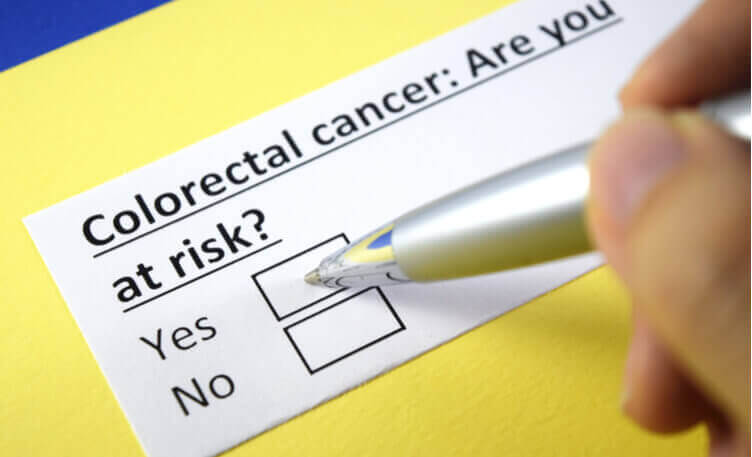5 Ways to Lower Your Risk for Colorectal Cancer

Colorectal cancer starts in the colon or the rectum and depending on where the malignant cells originate, can be termed as colon or rectal cancer. But since both these cancers have many common symptoms, they are often grouped together under the wider category of colorectal cancer.
Colorectal cancer is the 6th most common cause of cancer deaths in India. However, the good news is that with certain precautions, it can be prevented. Moreover, unlike other cancers, the long-term prognosis in colorectal cancers is very good, especially if detected at an early stage.
How to Reduce Your Risk of Colon Cancer
Here are 5 tips that you can use as a guide to lowering your risk of colorectal cancer:
-
Get Regular Colon Cancer Screening
Getting screened regularly for colorectal cancer is the most effective way to protect yourself from this disease. Regular screening can catch cancer early, at a stage when it’s more treatable, and help prevent the disease by finding polyps or abnormal growths that may turn cancerous over time.
A doctor can help you decide how often you need to undergo tests depending on your personal preferences and medical history. Most people should begin getting tested at the age of 50. But if you have a history of bleeding with stools or recent alteration in bowel habits, it is better to not ignore these symptoms and see a specialist. If your family has a history of colon or rectal cancer or other important risk factors, then you should get tested earlier.
Some of the recommended screening options are as follows:
-
Fecal Occult Blood Test (FOBT) / Fecal Immunochemical Test (FIT)
It is advisable to get this test done once a year. You will require to send a small sample of your stool to the lab to be tested. The tests will look for any hidden blood in your stool sample, that may be indicative of cancer. -
Colonoscopy/ Flexible Endoscopy
During this test, you will be sedated and a small flexible tube with a camera at the end will be used to examine the distal part (sigmoidoscopy) or the full length of the inside of your colon (colonoscopy), whatever has been prescribed by your doctor. If the exam finds polyps or other suspicious growths, they can be removed during the test itself. Make sure to ask a friend or family member to accompany you to the hospital for this procedure, so you have someone to drive you home afterwards.
-
Virtual Colonoscopy
This can be done once every 5 years. This test is a type of CT scan that creates a precise 3-D image of the inside of the colon. During the test, a small tube is inserted into the rectum to gently inflate the colon with air. It is shorter than the other tests and should just take a few minutes.
-
-
Quit Smoking to Lower Your Risk Of Colon Cancer

We all know that smoking is injurious to health. Quitting cigarette smoking is the single best thing you can do to reduce your risk of cancer. On top of raising the risk of cardiovascular and heart diseases, smoking is the major cause of over 14 different types of cancers, including colorectal cancer. Giving up cigarettes not only cuts your cancer risk in half, but it also has cardiovascular and other lifestyle benefits.
-
Eat Right for a Healthy Colon
A diet that includes lots of fruits, vegetables, and whole grains has been linked to a decreased risk of colon or rectal cancer. On the other hand, a diet rich in trans-fats, red meats, and processed meats has been linked to an increased risk of colorectal cancer. Opt for more plant-based foods and cut down on meats such as beef, pork, and luncheon meats.
-
Be Active

Apart from the many benefits of regular exercise, it may also help reduce your risk of cancer. If you are not physically active, you have a greater chance of developing colon or rectal cancer. Any amount of physical activity is better than being sedentary, but it’s always good to aim to fit in at least 30 minutes or more of moderate exercise every day. The activity could be anything from brisk walking to strength training, take your pick and you will enjoy doing it.
-
Limit Alcohol
Like smoking, alcohol intake has also been linked to a higher risk of colorectal cancer. Although alcohol has been found to be healthy for your heart, in moderation, it will increase the risk of colon and other cancers even when consumed in low quantities. Make moderation the key to consuming alcohol. Limit to one or two drinks per day. Heavy drinkers should try to cut down and quit altogether.
Although colon cancer is very preventable, there are some important risk factors that are unavoidable. Age, chronic bowel disease, and genetic disposition can all put you at a greater risk of colorectal cancer. Knowing which one applies to you will help you and your doctor take the necessary steps to prevent it.






